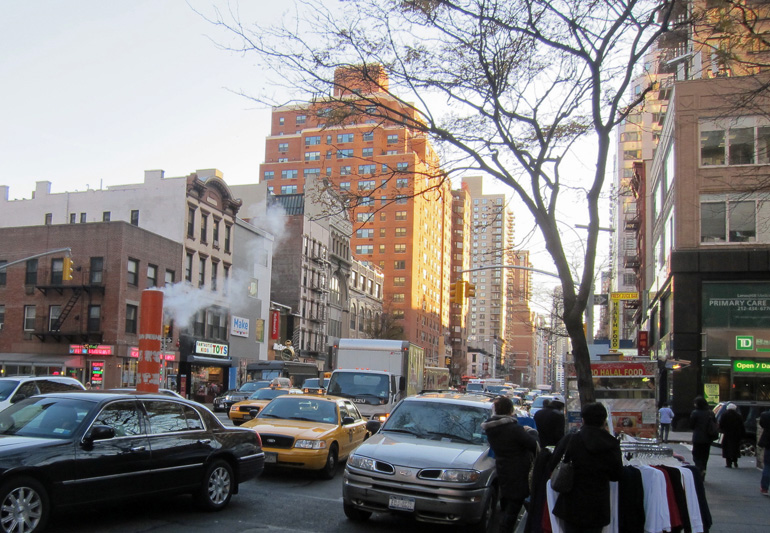Gotham Diary:
On the Boil
27 November 2012
I had expected something somewhat more lighthearted, more of a caper film, than what Ben Affleck’s Argo turned out to be. And maybe that’s what I’ll get when I see it again, as indeed I shall, possibly in the theatre, probably on DVD. But the first time round, even though I knew the happy outcome — the successful rescue from Tehran of six men and women who escaped from the American embassy just as it was being stormed in 1979 — I found Argo difficult to sit through at times, and I watched the last ten minutes or so standing up, to relieve some of the vulnerability that came with being seated. (I always sit at the back of movie theatres.) Without much in the way of hitting or shooting (and no actual killing that I can recall), Affleck has given us one of the most violent of films. Its violence is not rooted in criminal psychopathy, as movie violence usually is when it’s not about military battles, but in emotions familiar to everyone: anger and dread. Argo simmers with the dread of the six American escapees, hiding out in the residence of the Canadian ambassador; and it boils over with the anger of revolutionaries, the ferocity of which is focused on the United States and its representatives. In Argo, Tehran appears to have been the site of an ongoing carnival of rage. Without the slightest show of overt disrespect to American policies, Ben Affleck persuades us to sympathize with this outpouring of hostility, which always retains — in the case of mass demonstrations — an element of civil respectability.
As for the six Americans, their ordeal is primarily captured as restlessness before the camera. Their faces do not settle within their close-ups. They look confused, slightly out of focus — as people often do in documentaries. The illusion of mortal fear for one’s life is compelling. You can tell yourself all you like that this is just a movie or remind yourself that it has a happy ending, but these forebrained observations are nullified by what passes before your eyes. (Mirror neuron theorists are going to have a field day.)
I read somewhere that the actual escape, from the Canadian ambassador’s house to the airspace beyond Iran’s borders, went pretty much without a hitch, but that Affleck and his team could not resist the temptation to enliven it with hair-raising checks. If so, I did not feel that there was anything gratuitous about the interpolations. Dipping into the modern mythology of checkpoints, of passports and other papers that must be evaluated by functionaries who are never as mechanically predictable as either side would like, relieves more pressure than it creates, simply because we all of us believe in it now, and we find the narrowest escapes the most satisfying. It doesn’t change the original story; it connects it to ours.

